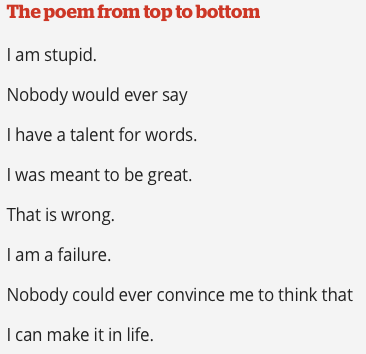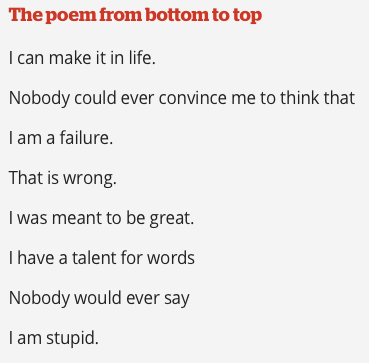“If a child can’t learn the way we teach, maybe we should teach the way they learn.”
There are so many clever students failing to keep up at school because they aren’t taught in a way that suits their needs. Here at INICIO we have a calm, nurturing environment for such students to learn coping strategies, not only to pass their exams, but for life.
There are some skills that come naturally to some students, but not to others. Firstly, that is ok! We all have our strengths and weaknesses - this is something we celebrate among our mentors and want to pass on to our students. Here at INICIO we can help you to:
Make effective notes
Understand assignment guidelines and criteria
Structure essays
Manage your time
Revise and learn exam techniques
Brush up on grammar, spelling and punctuation
There are some schools that ban the "D-words" such as Dyslexia, Dyscalculia, Dyspraxia and ADHD. At INICIO we celebrate neurodiversity, we don't cower from it.
Dyslexic children are more likely to suffer low self-esteem, poor motivation and concentration - this is unacceptable and we want you to help us to intervene.
We also understand, however, that to be successful later on in life we need to first achieve qualifications such as English and Maths GCSEs. We want to help to make these less stressful and daunting for our "D-students" and to help them to get the best grades that they can, the grades that they deserve!
‘The Dyslexia in the Classroom’ handbook has lots of additional and helpful information on dyslexia, from signs and symptoms, tips and techniques to the social and emotional effects of dyslexia.
Keeping up with Dyslexia
Children learn and develop at their own pace, which is something that is celebrated at INICIO. Reading and other English skills are no different from any other skill building, but if this becomes an ongoing struggle that leaves a child falling behind their peers, it’s possible that they have a learning disorder known as dyslexia.
Dyslexia can vary from child to child, but it is thought to affect at least 1 in 5 children. There are accommodations available for those with dyslexia and they remain available for a lifetime, for example extra time on tests. Of course coloured overlays and extra time don't eliminate dyslexia completely and it can be hard to cope with on a day-to-day basis, especially at school.
INICIO can help dyslexic students to keep up by giving them the extra time and support they need to develop both their English skills and their confidence. We provide bespoke tutoring and so we are able to tailor lessons around each child's needs.
Dyslexia is a learning difficulty which impacts a learner's ability to read and spell accurately. There is no 'one box ticks all' approach to interventions for dyslexia, as different aspects of the continuum of challenges can be seen in different learners. This is why our set-up here at INICIO is perfect, as we can pick out the tricky aspects and build on these specific skills when teachers in a classroom may not have the time or resources to do so! :)
General hints and tips and what we do to help students with dyslexia :)
Making sure activities are personalised to the specific needs of the students is one of the most important tips for working with students with dyslexia.
Learners tend to have low working memory and processing speeds, so allowing extra time for them to digest information is key!
Over-learning opportunities are vital, so making sure that they consistently revisit topics is very important.
The self-esteem of learners is understandably much weaker, as it can take them much longer to understand in comparison to their peers. Therefore, lots of encouragement and belief that they can do it is needed!
Difficulties in acquiring phonological skills (the relationship between sounds and the letter symbols) is a major factor towards the cause of dyslexia, so extra work on this, especially for older students who might not be doing it in school, is also useful.
Organisational skills are also sometimes lacking for those with dyslexia, so support with organising homework and time productively (rather than assuming that these can be done independently) is also a necessary part of supporting learners with dyslexia.
Activities should be multi-sensory; this not only helps with remembering information, but also ensures that, if a student is good at listening tasks, for example, we can use their strengths to help with their literacy weaknesses.
Give us a call or send us an email if you’d like to arrange an assessment or regular weekly sessions in any of the subjects that we tutor!





